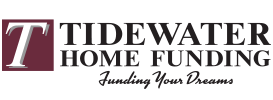
Purchasing a home is an extremely exciting, yet daunting task for any buyer. Searching for a home, finding a loan officer, choosing a real estate agent and closing on the home are all a part of the process of purchasing. These steps and processes are commonly known among most home buyers, but some fees often are ignored when choosing a home: homeownership maintenance expenses and Homeowners Association (HOA) fees.
Find out why HOAs must be considered when choosing a home and how families can integrate these fees into their monthly budget.
What is a Homeowners Association?
When you purchase a townhome, condo or property in a planned development, you may be obligated to join the community’s Homeowners Association. Not to be confused with homeownership expenses, HOA fees are paid to the association to manage the common spaces.
These fees usually cover common spaces within the community or complex including landscaping, pool maintenance, clubhouse use, sidewalks and in some rare cases, extra insurance. Before purchasing any home, be sure to read the HOA services and requirements very closely to see what is being paid for by the HOA. HOA fees range on average between $200-$400 per month but can be much less or more depending on the community pricing model.
Pricing
Fees are either paid via monthly fees or a reserve fund that must be paid yearly. Be sure to research HOA fees in your area to see if the community is on par with the surrounding area. These fees should always be calculated into the budget and be acknowledged as part of the housing budget. Not paying HOA fees can result in a lien on the property, and in some cases foreclosure. Check the budget to guarantee these fees fit into the category amounts decided upon within the budget.
Covenants, Conditions & Restrictions
HOAs are not only put into place for common space maintenance, but for the aesthetics of the entire community. This means that there are often rules and regulations regarding what you as a homeowner can update on the property. Paint colors, landscaping and pets are often regulated by HOAs and should be considered when choosing a home. Fines can be implemented if property rules are not adhered by.
Important Questions for HOAs
As mentioned above, understanding all rules and regulations is the best way to avoid issues with HOAs. Ask questions at the main office to determine any fine print issues that may arise. Ask questions like:
- Are there any bans in place against solar panels, composting or gardens?
- What insurance coverage does the HOA cover? Do they have catastrophic coverage? (Flood, Hurricane, Fires)
- What is the average maintenance response time for common area issues? Is any maintenance covered on my personal property?
- Does the association have bi-weekly, monthly or quarterly meetings?
- Who and where do I call when there is an issue?
HOAs can take some burden off the homeowner personally when it comes to maintenance and can be a great asset. Weigh the pros and cons of the HOA rules, requirements and fees to determine if a HOA community is the best choice for your family.

